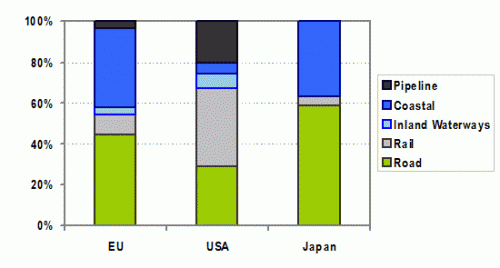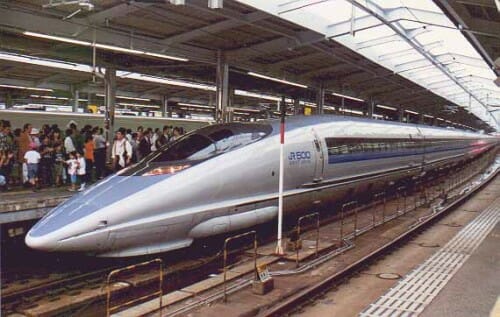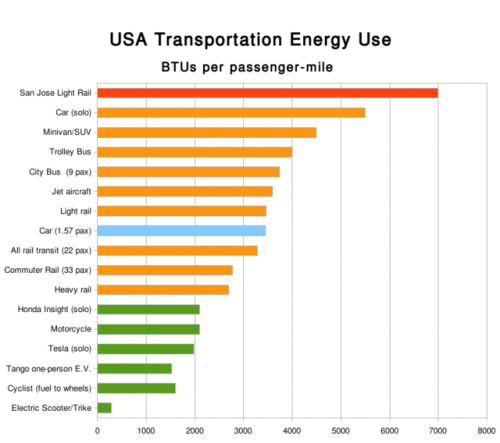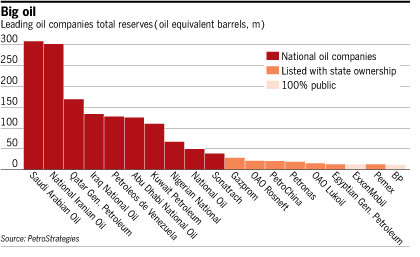What is it about intellectuals that seem to, generation after generation, fall in love with totalitarian regimes because of their grand and triumphal projects? Whether it was the trains running on time in Italy, or the Moscow subways, or now high-speed rail lines in China, western dupes constantly fall for the lure of the great pyramid without seeing the diversion of resources and loss of liberty that went into building it. First it was Thomas Friedman, and now its Joel Epstein in the Huffpo, eulogizing China. These are the same folks who tried, disastrously, to emulate Mussolini's "forward-thinking" economic regime in the National Industrial Recovery Act. These are the same folks who wanted to emulate MITI's management of the Japanese economy (which drove them right into a 20-year recession). These are the same folks who oohed and ahhed over the multi-billion dollar Beijing Olympics venues while ignoring the air that was unbreathable. These are the same folks who actually believed the one Cuban health clinic in Sicko actually represented the standard of care received by average citizens. To outsiders, the costs of these triumphal programs are often not visible, at least not until years or decades later when the rubes have moved on to new man crushes.
Epstein, like Friedman, seems to think that the US is somehow being left behind by China because its government builds much more stuff. We are "asleep." Well, I have a big clue for him. Most of the great progress in this country was built when the government was asleep. The railroads, the steel industry, the auto industry, the computer industry - all were built by individuals when the government was at best uninvolved and at worst fighting their progress at every step.
Epstein in particular thinks we need to build more trains. This is exactly the kind of gauzy non-fact-based wishful thinking that makes me extremely pleased that Epstein in fact does not have the dictatorial powers he longs for. High speed rail is a terrible investment, a black hole for pouring away money, that has little net impact on efficiency or pollution. But rail is a powerful example because it demonstrates exactly how this bias for high-profile triumphal projects causes people to miss the obvious.
Which is this: The US rail system, unlike nearly every other system in the world, was built (mostly) by private individuals with private capital. It is operated privately, and runs without taxpayer subsidies. And, it is by far the greatest rail system in the world. It has by far the cheapest rates in the world (1/2 of China's, 1/8 of Germany's). But here is the real key: it is almost all freight.
As a percentage, far more freight moves in the US by rail (vs. truck) than almost any other country in the world. Europe is not even close.
 (source)
(source)
You see, passenger rail is sexy and pretty and visible. You can build grand stations and entertain visiting dignitaries on your high-speed trains. This is why statist governments have invested so much in passenger rail -- not to be more efficient, but to awe their citizens and foreign observers.
But there is little efficiency improvement in moving passengers by rail vs. other modes. Most of the energy consumed goes into hauling not the passengers themselves, but the weight of increasingly plush rail cars. Trains have to be really, really full all the time to make an energy savings for high-speed rail vs. cars or even planes, and they seldom are full. I had a lovely trip on the high speed rail last summer between London and Paris and back through the Chunnel -- especially nice because my son and I had the rail car entirely to ourselves both ways.
The real efficiency comes from moving freight. More of the total energy budget is used moving the actual freight rather than the cars themselves. Freight is far more efficient to move by rail than by road, but only the US moves a substantial amount of its freight by rail. One reasons for this is that freight and high-speed passenger traffic have a variety of problems sharing the same rails, so systems that are optimized for one tend to struggle serving the other.
Freight is boring and un-sexy. Its not a government function in the US. So intellectuals tend to ignore it, even though it is the far more important, from and energy and environmental standpoint, portion of transport to put on the rails. In fact, the US would actually probably have even a higher rail modal percentage if the US government had not enforced a regulatory regime (until the Staggers Act) that favored trucks over rail. If the government really had been asleep the last century, we would be further along.
The US has not been "asleep" -- at least the private individuals who drive progress have not. We have had huge revolutions in transportation over the last decades during the same period that European nations were sinking billions of dollars into pretty high-speed passenger rails systems for wealthy business travelers. One such revolution has been containerization, invented here in the US and quickly spreading around the world. Containerization has revolutionized shipping, speeding schedules and reducing costs (and all the while every improvement step was fought by the US and certain local governments). To the extent American businesses are not investing today, it has more to do with regime uncertainty, not knowing what new taxes or restrictions are coming next from Congress, than any lack of vision.
I would argue that the US has the world's largest commitment to rail where it really matters. But that is what private actors do, make investments that actually make sense rather than just gain one prestige (anyone know the most recent company Warren Buffet has bought?) The greens should be demanding that the world emulate us, rather than the other way around. But the lure of shiny bullet trains and grand passenger concourses will always cause folks like Epstein to swoon.
Update #2: The author Joel Epstein emailed me a response to this post. I will give it to you in its entirety: "You should get out of the country more often." Wow, he played the provincial American card on me. Except that I have been to about 20 countries, from Singapore to Argentina to Hungary. Besides, I really don't understand what the hell he means by this in the context of my post, except as a bid for some sort of intellectual superiority. Anyone else understand?
Postscript
Boring, but environmentally friendly and cost-effective:

Sexy, but environmentally useless (at best) and tremendously costly:

So, explain to me what drives these guys investment thinking. Can it be anything but triumphalism?
Update: Energy use comparison of passenger modes. Note how close rail transit and cars, both at average occupancies, are in this analysis. The differences in freight are much larger:




 (
(


